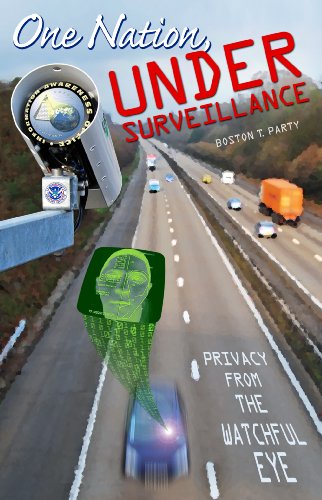A 10-page Powerpoint presentation (pdf) that I recently obtained through a Freedom of Information Act Request to the Department of Justice, reveals that law enforcement agencies routinely seek and obtain real-time surveillance of credit card transaction. The government’s guidelines reveal that this surveillance often occurs with a simple subpoena, thus sidestepping any Fourth Amendment protections.
Background
On October 11, 2005, the US Attorney from the Eastern District of New York submitted a court filing in the case of In re Application For Pen Register and Trap and Trace Device With Cell Site Location Authority (Magistrate’s Docket No. 05-1093), which related to the use of pen register requests for mobile phone location records.
In that case, the US Attorney’s office relied on authority they believed was contained in the All Writs Act to justify their request for customer location information. In support of its claim, the office stated that:
Currently, the government routinely applies for and upon a showing of relevance to an ongoing investigation receives “hotwatch” orders issued pursuant to the All Writs Act. Such orders direct a credit card issuer to disclose to law enforcement each subsequent credit card transaction effected by a subject of investigation immediately after the issuer records that transaction.
A search of Google, LexisNexis and Westlaw revealed nothing related to "hotwatch" orders, and so I filed a FOIA request to find out more. If the government "routinely" applies for and obtains hotwatch orders, why wasn’t there more information about these.
It took a year and a half to learn anything. The Executive office of US Attorneys at the Department of Justice located 10 pages of relevant information, but decided to withhold them in full. I filed my first ever FOIA appeal, which was successful, albeit very slow, and finally received those 10 pages this week.
 One Nation, Under Surv...
Best Price: $3.80
(as of 06:20 UTC - Details)
One Nation, Under Surv...
Best Price: $3.80
(as of 06:20 UTC - Details)
As the document makes clear, Federal law enforcement agencies do not limit their surveillance of US residents to phone calls, emails and geo-location information. They are also interested in calling cards, credit cards, rental cars and airline reservations, as well as retail shopping clubs.
The document also reveals that DOJ’s preferred method of obtaining this information is via an administrative subpoena. The only role that courts play in this process is in issuing non-disclosure orders to the banks, preventing them from telling their customers that the government has spied on their financial transactions. No Fourth Amendment analysis is conducted by judges when issuing such non-disclosure orders.
While Congress has required that the courts compile and publish detailed statistical reports on the degree to which law enforcement agencies engage in wiretapping, we currently have no idea how often law enforcement agencies engage in real-time surveillance of financial transactions.
Reprinted with permission from DubFire.
December 4, 2010
2010 DubFire





